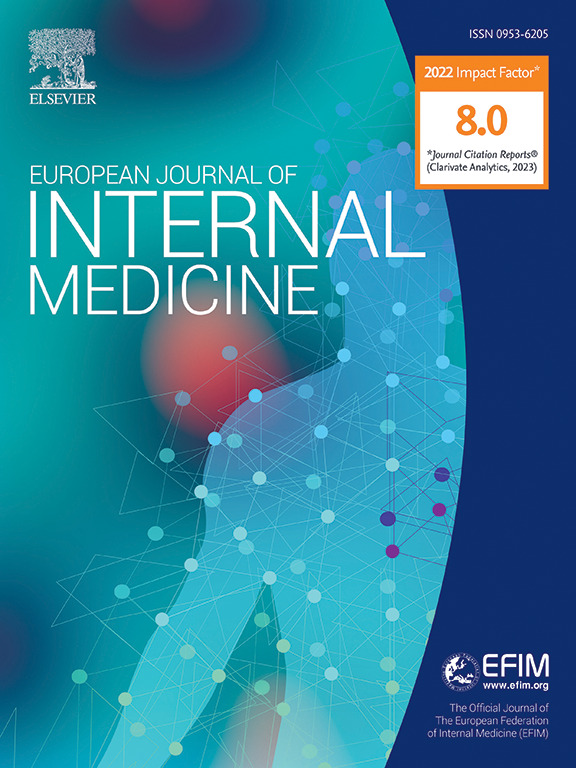Multi-organ abnormalities assessed by a single MRI scan in individuals with blood cancer
IF 5.9
2区 医学
Q1 MEDICINE, GENERAL & INTERNAL
引用次数: 0
Abstract
Background
During the COVID-19 pandemic individuals with all blood cancers were classified as clinically vulnerable and at high risk of complications and death. Our study sought to determine if individuals with specific blood cancers were at a heightened risk of longer term organ impairment, secondary to SARS-CoV-2 infection.
Methods
We set up a prospective observational study, utilising quantitative multi-parametric MRI to determine organ health over time in patients with specific blood cancers who had recovered from COVID-19.
Results
Multi-organ abnormality was more prevalent in blood cancer patients than in healthy controls (42 % vs 6 % p < 0.001) but comparable to the long COVID controls (42 % vs 33 %, p > 0.05). At 6 month follow up scans, organ abnormalities persisted in most individuals with blood cancer (71 % ≥1 organ and 52 % multi-organ).
Conclusion
A multi-organ MRI platform offers the capacity to accurately evaluate organ health dynamically in blood cancers and detect asymptomatic organ impairment. The application of multi-organ MRI could aid early detection and longitudinal monitoring of organ impairment, potentially guiding more personalised treatment strategies and improving clinical outcomes in many rare diseases.
通过一次磁共振成像扫描评估血癌患者的多器官异常情况
背景在 COVID-19 大流行期间,患有所有血癌的人都被列为临床易感人群,并面临并发症和死亡的高风险。我们的研究旨在确定特定血癌患者是否因感染 SARS-CoV-2 而面临更高的器官长期受损风险。方法我们建立了一项前瞻性观察研究,利用定量多参数磁共振成像来确定从 COVID-19 中康复的特定血癌患者的器官健康状况。结果与健康对照组相比,血癌患者的多器官异常发生率更高(42% vs 6% p <0.001),但与长期COVID对照组相当(42% vs 33%, p >0.05)。在 6 个月的随访扫描中,大多数血癌患者的器官仍存在异常(≥1 个器官的占 71%,多个器官的占 52%)。多器官磁共振成像的应用有助于早期检测和纵向监测器官损伤,有可能指导更个性化的治疗策略,改善许多罕见病的临床预后。
本文章由计算机程序翻译,如有差异,请以英文原文为准。
求助全文
约1分钟内获得全文
求助全文
来源期刊
CiteScore
9.60
自引率
6.20%
发文量
364
审稿时长
20 days
期刊介绍:
The European Journal of Internal Medicine serves as the official journal of the European Federation of Internal Medicine and is the primary scientific reference for European academic and non-academic internists. It is dedicated to advancing science and practice in internal medicine across Europe. The journal publishes original articles, editorials, reviews, internal medicine flashcards, and other relevant information in the field. Both translational medicine and clinical studies are emphasized. EJIM aspires to be a leading platform for excellent clinical studies, with a focus on enhancing the quality of healthcare in European hospitals.

 求助内容:
求助内容: 应助结果提醒方式:
应助结果提醒方式:


